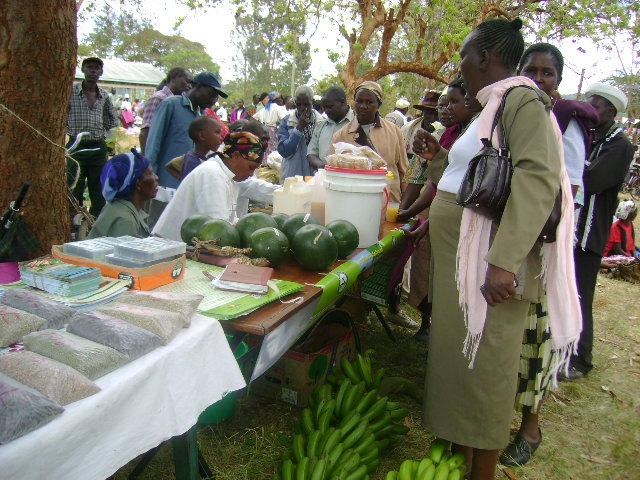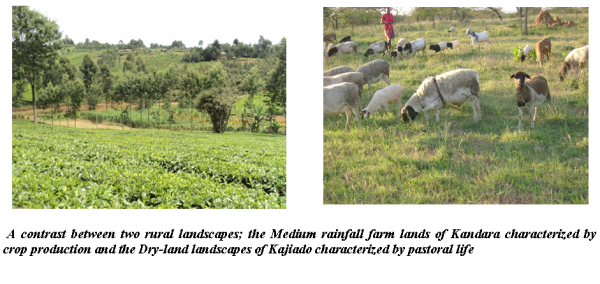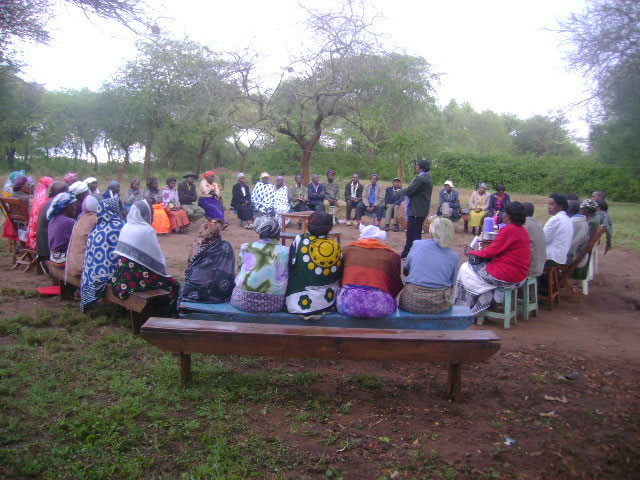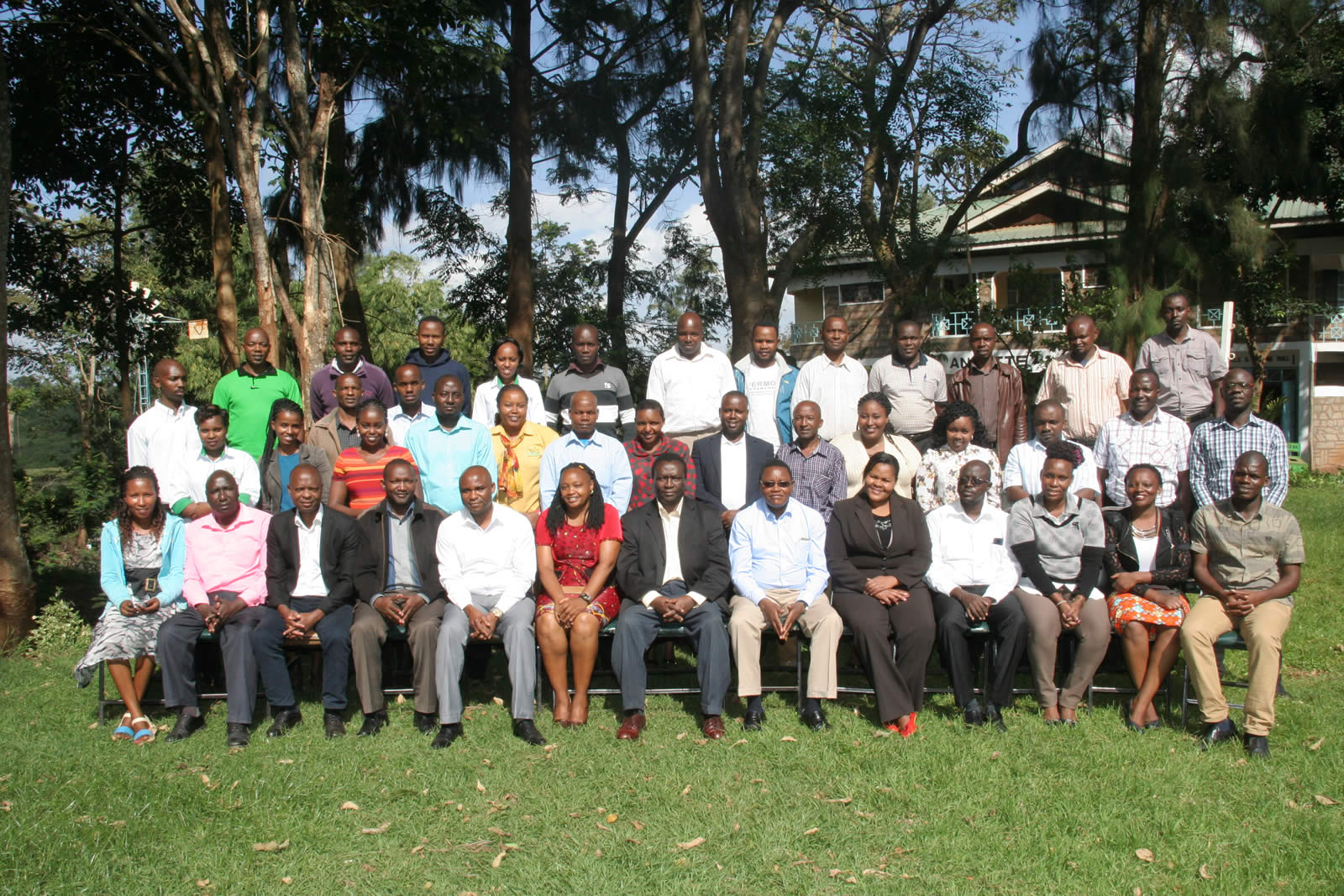Historical Perspective
In 1991, a small group of Kenyans sat in a Social place and started a discussion on why Kenyan People are getting poorer. This was happening in the face of generation and spending of enormous human, natural and financial resources. Kenya was (and still is) rated as one of the African countries with a well structured, agricultural research, training, extension and use of mass media. Yet millions of families lacked food and agro income security. In the following meetings that followed, the reason became clear:
Conventional Agriculture approach had come and made its contribution. Farmers in developing countries could no longer continue using high chemical- high cost export only oriented agriculture.
The approach was NOT LOGICAL RELIABLE OR REALISTIC
Solution
Establishment and implementation of Low Cost External Input Agriculture – Results. 17 years later over 40,000 families in Kenya have experienced a dramatic turn around in their household economies.
Farmers can build new houses, children can attend school, families can access medical care and overall family savings and investment secured.
Women have attained leadership skills and become chiefs and opinion shapers in their villages. Government and other development agencies have recognized SACDEP’s S.A approaches as a success case which deserves integration in policies.
SACDEP has achieved a big feet in Kenya. It has created a Logical, realistic and Reliable approach to agriculture.
SACDEP strongly holds the belief that people are not just poor. What exists is a result of marginalization, poor resource distribution, oppression, fraud and disadvantages, historically perpetuated by the powerful. The reason why some continents, regions, countries or individuals are very rich while others are very poor is as a result of selfish tendencies. People or groups continue accumulating and holding wealth endlessly. Meanwhile, people considered poor rather, have enormous resources at their disposal. They have the desire to improve their lives. Yet, opportunities to achieve their goals are often hampered by denial for knowledge, skills and empowerment. Their weak positions attract more extraction of their resources by the powerful and the already rich. The Poverty cycle therefore continues.
SACDEP Development approach
The Organization is clear that external resources do not create development. Rather, they are ejected in so as to catalyze the slow process of changing people’s lives positively. Upon provision of knowledge and skills, farmers are more exposed, informed and empowered. They are hence able to design and follow their desired destiny in life.
To achieve this, SACDEP works on the following programmes:
- Farmers’ mobilization and organization into agricultural development fora.
- Conducting hands-on training and exposure to the groups in all aspects of agriculture – production, processing, marketing or Organic products.
- Training and supporting farmer groups in the creation of a savings and credit culture.
- Documentation of Sustainable Agriculture Principles and using the same to inform and influence development policies, approaches and practices.
- Networking with the development Institutions of Government, funders, NGOs and individuals committed to Sustainable Development and empowering of people.

Our mission
Our mission as an organization is to facilitate sustainable development for communities in Kenya and the East African Region who have low access to resources, to enable livelihood improvement through Sustainable Agriculture principles and practices.
Our vision
Kenya and East Africa Region whereby hitherto resource limited farming communities are realizing and utilizing their full potential in improving and sustaining their desired levels livelihood.
Against this thinking, the organization has continued to design, implement and evaluate projects guided by the 4 principles of sustainable Agriculture Namely;
- Economic feasibility to farming enterprises especially for small-holders.
- Environmental soundness to all agricultural undertakings.
- Social justice to all especially small-holders.
- Cultural acceptability to all initiatives introduced.
SACDEP-Kenya is a given leadership by 7 persons Voluntary Board of Trustees. They are all Kenyans with a rich background in Sustainable Agriculture and People’s development.
The Organization undertakes its programmes through 3 interlinked sectors namely:
Community Agriculture Programs (Cap Sector)
The CAP Sector is responsible for designing and implementing S.A projects at community level. The sector strives to turn around the lives of 5,000 families every year in over 14 Districts in Kenya.
It obtains funding from small, medium and large funding Institutions and Individual persons.
Self Funding Initiative
This sector is responsible of generating project funds through provision of accommodation and administration services. Using SACDEP’s Seminar and Conference facilities in Thika Town, the sector gives some surpluses for small community projects.
Currently, the sector is working towards increasing accommodation space to 80 beds. The goal being to establish an ENDOWMENT FUND.
Technical Training and Research (TTR) Sector
Over many years of work, the Organization has established that there is not enough qualified personnel with a clear understanding on the Principles and Practices of S.A. As such, it is still difficult to achieve adequate Informing and Influencing Personnel on SA at National level. Undertaking detailed and Scientific Research on S.A also remains a big challenge.

Communities in developing countries are the underprivileged. In Sub-Saharan Africa, more than 80% of the populations depend on rain-fed agriculture. In Kenya 70% of the people live in rural areas where they work on farms to generate food and income.
Their lives are characterized by:
- Diminishing land sizes
- Diminishing financial capacity to purchase chemical farm inputs
- Diminishing ability to establish farm mechanization.
- Declining soil fertility and energy sources
- Reducing ability to determine prices for their agricultural produce.
- Reduced ability to irrigate farms.
- Reduced ability to influence policies that control their rural development.
On the other hand;
- Increasing family and population sizes.
- Increasing prices for rural development goods and services.
The end result of the scenario analyzed above is a people who are disempowered. SACDEP believe that people are not necessarily poor, their status are as a result of poor development strategies.
These strategies are perpetuated by a biased elitist minority mostly guided by academic and foreign thinking.
Therefore, SACDEP SAYS “give people an opportunity to develop themselves and you will be surprised at what they can do for themselves.”

These principles have been tested for the past 20 years by SACDEP through many projects. Experiences gained have been enormous. Based on this practical knowledge, 3 years ago the organization refined sustainable agriculture into 7 key technical pillars which its Programmes thus:-
- To reduce weakness and vulnerability. Farmers are organized into strong groups for different projects and initiatives.
- Crop and livestock Programmes guided by the principles of sustainable agriculture, specifically using low external inputs.
- To have a good measure of determination farmers are trained to produce, process, add value and market as economically feasible.
- Small holder farmers are not oftenly credit worthy (especially women) to banks and micro finance Institutions. Farmers form own village banks to save and obtain credit.
- Majority of the communities live in the difficult to reach rural regions. Use of Renewable Energy Sources is trained on. They use it for food processing, cooking, lighting, transportation etc.
- Harnessing, Conserving and Utilization of community shared resources. Communities work in the conservation and sustainable use of water for irrigation, cattle tick control dips and rehabilitation of forests and water catchments.
- Most communities leave others to determine their future. Ongoing Programmes educate farmers on policies, rules and regulations that affect them and how they can make proactive participation in their review and formulation.

